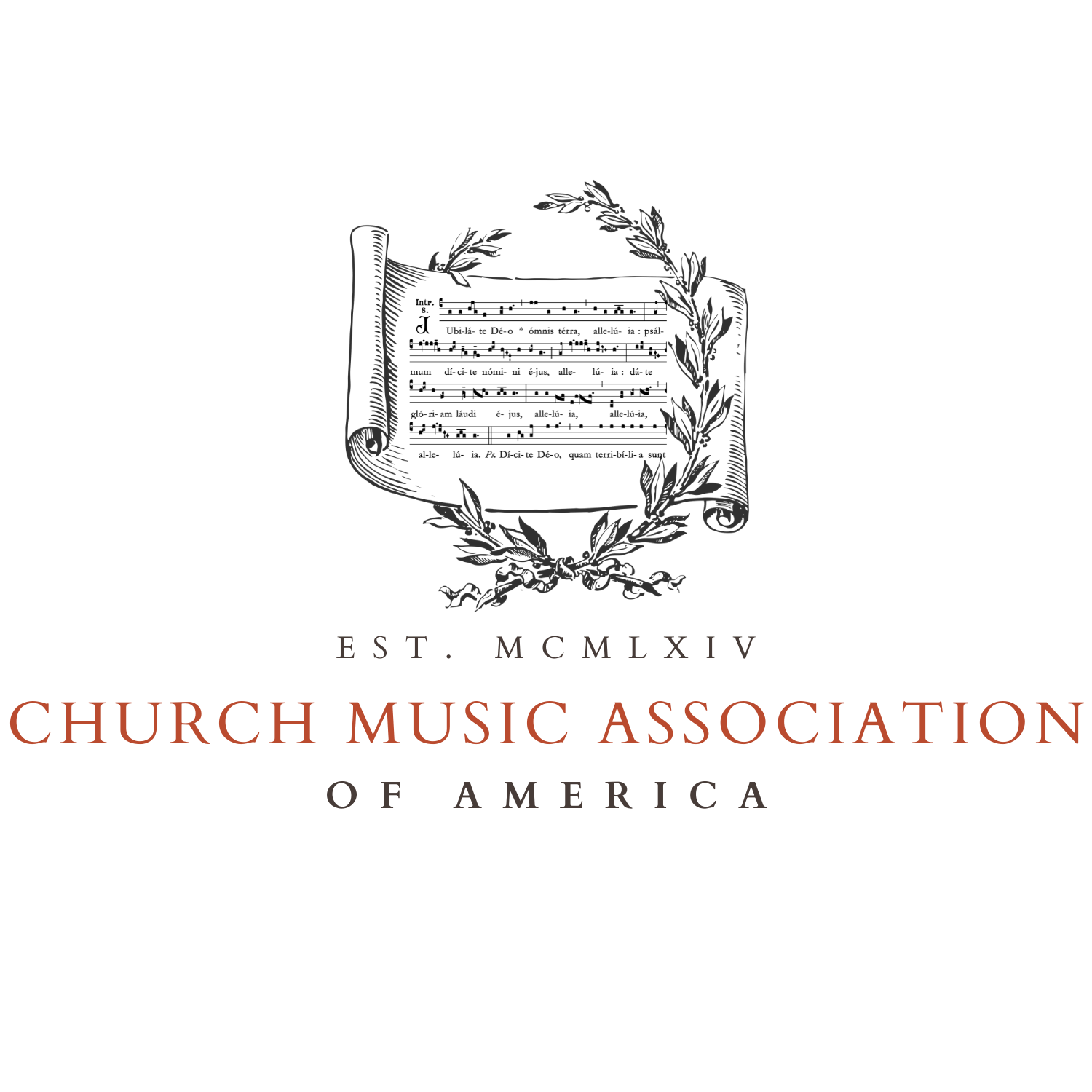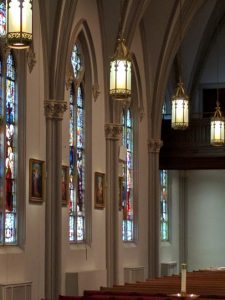 CMAA SUMMER COURSES
CMAA SUMMER COURSES
June 26 – 30, 2017
Duquesne University, Pittsburgh, PA
The CMAA is proud to present four summer courses for the summer of 2017. All courses will be held concurrently at the Mary Pappert Music School at Duquesne University.
Chant Intensive and Laus in Ecclesia – Level One
Ward Method I – That All May Sing and Ward Method II – Intermediate
UPDATE: REGISTRATION IS NOW CLOSED
HELPFUL LINKS
Campus Map
REGISTRATION – ONLINE
Course Schedule
Instructions for Clergy
Syllabus for Chant Intensive
Around Pittsburgh
 Information about bus routes, fares and passes can be obtained at the port authority website.
Information about bus routes, fares and passes can be obtained at the port authority website.
Airport Shuttles and Transportation
Public transportation from the Pittsburgh airport is available. Click here for details. Alternatively, a twenty-five minute cab ride from the airport runs about $45. Many shuttle services are available. One of them is SuperShuttle, another is AirportShuttle.com.
CHANT INTENSIVE
The Chant Intensive lives up to its name: though no previous experience with chant is required, beginners and intermediate chanters should be prepared for full immersion from the start. You will learn or review how to read and fully navigate all aspects of traditional Gregorian notation (square notes), as well as an introduction to chironomy (directing chant) with a masterful teacher.
The course will also address correct Latin pronunciation, the sound and mystery of the eight Church modes, Psalm tones and their applications, questions concerning the rhythm of plainsong, and more. Compline will be sung to allow participants to experience the beauty of a portion of the sung Divine Office. Gregorian repertoire will be used for Divine Office and Mass.
The CMAA Summer Chant Intensive is intended for beginning and continuing students and all who love and appreciate the central role that chant plays as the prayerful song of the Roman Rite–not only at cathedrals and basilicas but in any parish. The conference will inspire and prepare participants to continue the renaissance of sacred music in our time, in both the ordinary and extraordinary forms of the Mass. In the years since the first CMAA Chant Intensive course was taught in 2008, hundreds of students have benefited from this in-depth course in Gregorian chant.
This summer’s course will be taught by instructor Dr. Jennifer Donelson in one section including men and women.
Recommended books:
Graduale Romanum (recommended)
Gregorian Missal (recommended)
Graduale Triplex (recommended)
The Technique of Gregorian Chironomy by Joseph Robert Carroll (recommended)
Text Book of Gregorian Chant According to the Solesmes Method by Dom Gregory Suñol (recommended)
Participants may bring their own copies of the recommended books to the course or may purchase them at the registration table before the start of the course. All materials required for the course will be provided.
ONLINE REGISTRATION
WARD METHOD I – THAT ALL MAY SING
For the second time, the CMAA is offering a beginning course in the Ward method developed by Justine Bayard Ward (1879 – 1975). This method was developed by Ward for the purpose of providing a basic integrated musical education for children in primary and intermediate grades of Catholic schools. The Ward Method has Gregorian Chant as its basis. Using her method, directors of children’s choirs may work toward the goal that all the children may sing — not just those with the most obvious natural talent.
The CMAA has offered short breakout sessions about the Ward method at Colloquia, but until last summer’s first course, we have not had the time available to provide the needed training for participants to take the methodology home to use with students. This summer’s course will provide training to allow participants to teach groups of children using these tried and true methods, including the planning and conducting of regular Ward lessons to groups of children.
A typical Ward lesson of approximately twenty minutes’ duration will contain these elements (as detailed in the Book One teacher’s manual):
• Vocal exercises (tone quality, timbre, voice placement)
• Rhythm (rhythm and metrical gestures and dictation)
• Staff notation (various systems)
• Dynamics – Expression
• Words – Song Texts
• Intonation – Pitch (Intonation exercises, eye and ear training, arm and finger gestures)
• Songs with and without words
Scott Turkington will again share his training and experience in sharing the Ward method with participants in this course in the hope of preparing new generations of Catholics to sing in choirs, scholas and in actively participating in the parish liturgies as parishioners in the pews.
Description:
Participants will learn how to plan a lesson, teach a vocal exercise, help non-singers to find their singing voices, teach an intonation exercise, play “listening” games, play “look and remember” games, study rhythm patterns, give rhythm dictation, teach a song without words and teach a song with words.
Prerequisites:
Prerequisite: Basic knowledge of music theory, including tonic sol-fa system.
Notes: This course will be limited to no more than 30 participants.
The CMAA Ward course does not have any official Ward accreditation and is not affiliated with the Center for Ward Studies.
Textbooks and teaching materials (a $65.50 retail value) will be provided to participants for the course.
ONLINE REGISTRATION
WARD METHOD II – INTERMEDIATE
For the first time, building on the success of our first Ward course offering in 2016, the CMAA is offering an Intermediate course in the Ward method developed by Justine Bayard Ward (1879 – 1975). This method was developed by Ward for the purpose of providing a basic integrated musical education for children in primary and intermediate grades of Catholic schools. The Ward Method has Gregorian Chant as its basis. Using her method, directors of children’s choirs may work toward the goal that all the children may sing — not just those with the most obvious natural talent.
The CMAA has offered short breakout sessions about the Ward method at Colloquia, but until last summer’s first course, we have not had the time available to provide the needed training for participants to take the methodology home to use with students. This summer’s course will provide training to allow participants to continue in their training to move beyond the first year of Ward instruction with advanced techniques and a continuation of the training needed to continue utilizing the Ward method beyond the first year.
Wilko Brouwers will share his training and experience in sharing the Ward method with participants in this course in the hope of preparing new generations of Catholics to sing in choirs, scholas and in actively participating in the parish liturgies as parishioners in the pews.
Description:
Participants will build on the knowledge gained during the Ward I course using a newly composed Ward songbook.
Prerequisites:
Ward I (CMAA) or the equivalent taught elsewhere.
Notes: This course will be limited to no more than 30 participants.
The CMAA Ward course does not have any official Ward accreditation and is not affiliated with the Center for Ward Studies.
The new Songbook and teaching materials will be provided to participants for the course. Participants are encouraged to bring their pitch pipe and red/green stick to the course. Replacements will be available for sale.
ONLINE REGISTRATION
LAUS IN ECCLESIA – LEVEL ONE
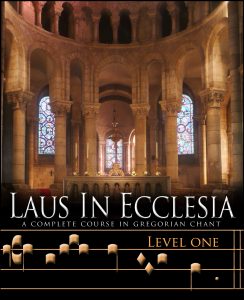 Laus in Ecclesia is a complete course in Gregorian chant in three (3) levels:
Laus in Ecclesia is a complete course in Gregorian chant in three (3) levels:
Level One: Beginners and members of a Gregorian choir
Level Two: More advanced, which could be described as what is necessary to sing in a schola and to sing the more elaborate chants (Graduale, Alleluia, Offertory).
Level Three: Perfecting the Gregorian skills to enable the student to direct a schola or group
This summer’s course will cover only the Level One. A book will be provided which contains all the course material. The subject matter covers theory and practice.
Theory: recognizing and naming the notes and the neums, rhythmic theory (Solesmes), Latin pronunciation, and finally, modality, all leading up to analysis of a chant.
Practice: Exercises in all theoretical areas mentioned: reading Gregorian notation, intervals, solfeggio, nomenclature of the neums, rhythmic exercises, pronunciation exercises, and rhythmic analysis.
In the course of the week, the students will be taken through all 15 lessons of the manual Laus in Ecclesia, level One. Much of the material will be explained, alternated with exercises and examples. Ideally, the manual is meant to provide a whole course with homework assignments at the end of each lesson to be completed and submitted for correction, and an oral practical examination after finishing the course. As it is unlikely that the student will be able to complete all this during the week, these assignments can be completed during the year and an exam can be taken at the next scheduled course, or other arrangements can be made individually.
The book Laus in Ecclesia is the revised edition of the St. Gregoire Schola’s manual. The previous five manuals which provided the teaching matter of the Schola are condensed into three levels with this revision. The first two levels have been published in France (the third is still in process). This course will include the use of the first level, which is newly published in English. This book provides color diagrams and illustrations to accompany the material. Also included is a CD which provides a model for solfeggio and rhythm exercises. These same tracks will also be available at the Laus in Ecclesia website (still in process, but planned for completion prior to the course in June).
Br. Mark Bachmann, choirmaster for Clear Creek Monastery will teach this course, sharing his many years of experience with class participants.
Required supplemental texts: Each student should plan to bring along one of the following for use during the course:
Gregorian Missal, Graduale Romanum or Liber Usualis.
* Note: Although it is recommended that each student have their own copy of at least one of these books, some loaner copies may be available on a first-come, first-served basis. Gregorian Missals and Graduale Romanum will be available for sale at the CMAA book table.
ONLINE REGISTRATION
FACULTY
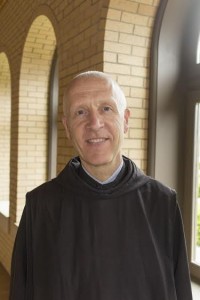 Br. Mark Bachmann will teach Clear Creek Monastery’s Laus in Ecclesia – Level One. This course is offered for the first time this summer and will use the newly-published Manual Laus in Ecclesia, Level One, newly revised and translated from the French edition.
Br. Mark Bachmann will teach Clear Creek Monastery’s Laus in Ecclesia – Level One. This course is offered for the first time this summer and will use the newly-published Manual Laus in Ecclesia, Level One, newly revised and translated from the French edition.
After earning a Bachelor’s degree in liberal arts, Brother Mark Bachmann entered Fontgombault, a Benedictine monastery in France, where he was ordained a priest in 1991. He sang in the Fontgombault schola, after which he functioned as precentor at Gaussan for five years. He attained the 4th degree of the St. Gregoire schola.
Sent as one of the 13 founders of Clear Creek monastery in 1999, he has served as choirmaster at the monastery since 2009. He was on the CMAA faculty for the 2016 Colloquium in St. Louis, MO.
top of page
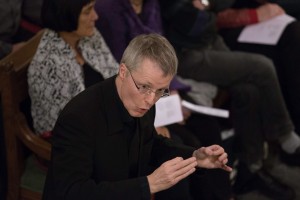 Wilko Brouwers of the Netherlands joins us this year for Ward II – Intermediate. He has taught both chant and polyphony at the CMAA Colloquia since 2004 and has developed a loyal following among CMAA program attendees. We are indeed fortunate that his schedule will allow him to also teach this course.
Wilko Brouwers of the Netherlands joins us this year for Ward II – Intermediate. He has taught both chant and polyphony at the CMAA Colloquia since 2004 and has developed a loyal following among CMAA program attendees. We are indeed fortunate that his schedule will allow him to also teach this course.
Wilko Brouwers has conducted the Monteverdi Kamerkoor Utrecht from 1989 until 2016 and the Strijps Kamerkoor Eindhoven since 2004. He was also the director of the Gregorian Schola of St. Benedictus Abbey in Achel, Belgium, a post he held for the last eight years until its closing in 2013. In 2016 he founded “The Gregorian Circle”, a group of 25 singers who join in one of Utrecht’s medieval churches to study and sing chant.
Original compositions by Wilko Brouwers have been published and recorded.
As a music educator, Wilko Brouwers teaches choral conducting at the Utrecht Art Center in the Netherlands. Internationally, he has taught workshops on Gregorian chant in Auburn, Alabama, Still River, Massachusetts, and Pamplona, Spain. Brouwers is the author of Stepping Tones, a method of sight reading for elementary schools and children’s choirs based on the Ward Method. His Words with Wings: Gregorian Chant for Children in Twenty Lessons has been published by the Church Music Association of America, with both student and teacher’s workbooks and demonstration CDs.
top of page
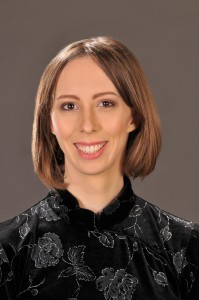 Dr. Jennifer Donelson will be teaching this summer’s Chant Intensive course.
Dr. Jennifer Donelson will be teaching this summer’s Chant Intensive course.
Donelson is an associate professor and the director of sacred music at St. Joseph’s Seminary (Dunwoodie) in New York, where she also teaches sacred music courses in the St. Cecilia Academy for Pastoral Musicians. Donelson has previously served as an Associate Professor at Nova Southeastern University in Fort Lauderdale. Having studied Gregorian chant at the Catholic University of America and Abbey of St. Peter in Solesmes, France, Dr. Donelson has served as the director of music at St. Gregory the Great Seminary (Diocese of Lincoln, NE) and St. Thomas Aquinas Newman Center (UNL). She currently directs the Schola Cantorum of St. Joseph’s Seminary and teaches Gregorian chant to children using the Ward Method at Neumann Classical School (Tuckahoe, NY) and Colm Cille Club (Pelham, NY).
She has given diocesan workshops in Gregorian chant across the U.S., is a co-founder of the annual Musica Sacra Florida Gregorian chant conference, and has served on the faculty of the annual colloquium of the Church Music Association of America. While in south Florida, Donelson directed the scholae cantorum at St. Michael the Archangel and Sts. Francis and Claire parishes in Miami, and taught according to the Ward method in the children’s choirs at the Oratory of Ave Maria, FL.
She has co-edited Mystic Modern: The Music, Thought, and Legacy of Charles Tournemire, recently published by the Church Music Association of America (CMAA). Her publications also include articles in the New Catholic Encyclopedia, Sacred Music, Antiphon: A Journal for Liturgical Renewal, the proceedings of the Gregorian Institute of Canada, and Liturgy in the Twenty-First Century (Bloomsbury/T&T Clark). She serves on the board of the Society for Catholic Liturgy as well as the CMAA, is the managing editor of the CMAA’s journal Sacred Music, was a co-organizer of the Sacra Liturgia USA 2015 conference in New York, and a speaker at Sacra Liturgia UK and Sacra Liturgia Milano.
top of page
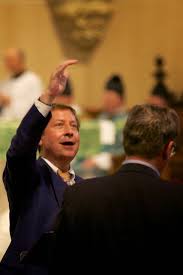 Scott Turkington, Organist and Choirmaster of Holy Family Church and Holy Family Academy in Minneapolis, MN, joins us for Ward Method I – That All May Sing.
Scott Turkington, Organist and Choirmaster of Holy Family Church and Holy Family Academy in Minneapolis, MN, joins us for Ward Method I – That All May Sing.
Prior to joining the staff at Holy Family in 2013, Turkington served as principal organist and choirmaster of the Roman Catholic Cathedral of St. John the Baptist in Charleston, SC. Until 2010, he served as organist and choirmaster for the Roman Catholic Basilica of Saint John the Evangelist in Stamford, Connecticut, where he conducted a choir in a program of weekly polyphonic Mass settings and Gregorian chant. Before accepting the position at St. John’s in 1998, he was Assistant Organist and Conductor at the National Shrine of the Immaculate Conception in Washington, D.C. While at the National Shrine, he played for over 500 services each year, and appeared on live national television dozens of times.
He has been Music Director at the Church of the Covenant in Boston; Music Teacher and Organist at St. Paul’s Choir School in Harvard Square, under Theodore Marier. A native of Minneapolis, he studied music at the University of Minnesota, the Boston Conservatory of Music and The Catholic University of America. His former teachers include Heinrich Fleischer, Phillip Steinhaus, and George Faxon.
In frequent demand as an organ recitalist, he has played innumerable recitals in the Northeast, having made his New York debut at St. Patrick’s Cathedral. He has performed for a national convention of the Organ Historical Society, and is a featured performer on the Organ Historical Society’s compact disc, Organs of Baltimore. In 1994, his choir performed for Pope John Paul II at St. Peter’s Basilica in Rome.
He is editor of A Gregorian Chant Masterclass by Theodore Marier, published by the Abbey of Regina Laudis in Bethlehem, Connecticut. This book and its companion CD feature the Stamford Schola Gregoriana and the nuns of Regina Laudis, both conducted by Turkington.
top of page
Registration Information – Mail-in
Mail-in and online registration can be completed now. To To register by mail and pay by check, complete the registration form for your desired course and mail to CMAA, PO Box 4344, Roswell, NM 88202. The discount code for members has been sent to our member list by email. Please contact Janet Gorbitz or call 505-263-6298 for questions about your member discount code if you have not received it. If you wish to pay your registration fees in installments, please use the mail-in form. Please note that tuition payment must be made in full by May 31st for regular tuition rates. UPDATE: REGISTRATION IS NOW CLOSED.
Registration Form for Chant Intensive
Registration Form for Ward I – That All May Sing
Registration Form for Ward II – Intermediate
Registration Form for Laus in Ecclesia
Tuition includes all sessions and supplemental materials as well as coffee breaks as described in the schedule. No meals are included in this tuition. All meals will be taken at the university dining hall. Payment is made at the entrance to the dining hall on a pay-as-you-go basis. Ward Course participants will receive all course materials upon arrival. Chant Intensive participants may bring their own copies of the recommended books to the course or may purchase them at the registration table before the start of the course. Other needed materials will be provided. Laus in Ecclesia participants will receive course materials at registration. The week’s events will culminate with Mass in the campus Chapel on Friday.
Ward I or II Tuition:
Regular Registration (deadline: May 31, 2016) for CMAA members is $400, including nonrefundable deposit of $75. Non-member price is $450. Payment must be made in full by May 31st to receive this rate.
Space is limited for the courses, but late registrations will be accepted if space is available after May 31, 2016. The late registration fee is $50. To inquire about registration after June 7, email us at programs@musicasacra.com.
Chant Intensive
Regular Registration (deadline: May 31, 2016) for CMAA members is $350, including nonrefundable deposit of $75. Non-member price is $400. Payment must be made in full by May 31st to receive this rate.
Space is limited for the courses, but late registrations will be accepted if space is available after May 31, 2016. The late registration fee is $50.
Laus in Ecclesia – Level One
Regular Registration (deadline: May 31, 2016) is $375, including nonrefundable deposit of $75. Payment must be made in full by May 31st to receive this rate.
Space is limited for the courses, but late registrations will be accepted if space is available after May 31, 2016. The late registration fee is $50.
top of page
COURSE CREDIT AT DUQUESNE
See the Duquesne University Summer Course offerings for information about taking these courses for credit. If you have questions about how to register through the university, please contact Dr. Ann Labounsky. For students taking the course for credit, CMAA tuition is waived. However, due to the limited number of spaces, please contact Janet Gorbitz at 505-263-6298 to reserve a spot before registering through Duquesne. See the summer course listing at Duquesne here: DUQUESNE SUMMER COURSES
top of page
DORMITORY LODGING AND CAMPUS INFORMATION
Dormitory lodging is available on the Duquesne University campus within easy walking distance of the Mary Pappert Music School. Participants will stay on the Duquesne campus in Vickroy Hall, located on the east end of campus. Temporary parking is available on Vickroy Street while you unload your belongings. The entrance desk will be secured with round the clock desk staff and equipped with ID card access, so late arrivals are no problem. You’ll receive your room assignment and room key at the front desk of Vickroy Hall. Upon checking in, please make sure the room key is compatible with the lock. If there are any issues, guests are encouraged to see the front desk immediately. You can access a campus map by visiting the Duquesne University website here: Campus Map.
The dormitory offers free wifi (login information to be provided to registered participants by email).
The rooms are arranged in suite arrangements, with two rooms sharing a bath between. Rooms are single or double occupancy. Linens will be provided, including sheets, one pillowcase, two bath towels, two washcloths, one pillow and one blanket. If you like to read before bedtime, bring a small book light for your convenience. Other items to bring: hangers, drinking cups, all toiletries (including blow dryer). If you have special medical or dietary needs and require a refrigerator in the room, please contact us at programs@musicasacra.com immediately to reserve one of a limited supply. There is a $10 charge for a refrigerator rental. All residence halls are air-conditioned. The University is patrolled by sworn officers 24 hours a day, 7 days a week. You may register for a single- or double-occupancy room for your stay. Rates are $50/night for a single or $40/night for a double, including linens. If you request a double (shared) room, please email us at programs@musicasacra.com with the name of your preferred roommate. If you do not designate a roommate, we will assign one to you. If we are unable to assign a roommate to you, you will be responsible for the single rate.
On-campus parking is available in the Forbes Avenue Parking garage for all guests. The garage is covered and centrally located on campus. Guests may park in the garage on a cash basis or a parking permit may be established for their stay on campus. It is recommended that you park in the garage on cash basis when you arrive and then visit the parking office during regular office hours to purchase your parking pass for the week.
Parking Rates
Rates subject to change, printed rates are not guaranteed.
Weekday Parking: $12.00
Evening and Weekend Parking (after 5pm): $ 6.00
For any participants with mobility issues, there is handicapped parking available at Duquesne University around campus. You can find out where those parking spaces are located by visiting the Duquesne University website here. These spaces do require the purchase of a surface parking pass at the parking office. Rates are the same for surface parking passes as for parking garage passes. Guests must have a handicapped tag or plate to make use of these surface tags.
Dining Times and Locations
The Incline – 1st Floor, Duquesne Union
Breakfast: 7:30 am – 9:00 am
Lunch: 11:00 am – 1:00 pm
Dinner: 4:30 pm – 6:00 pm
Saturday and Sunday
Brunch: 10:30 am – 1:00 pm
Dinner: 4:30 pm – 6:00 pm
Other Meal options
Sweet Sips Coffee Cafe
Coffee Cart – Locust Street
7:30 am – 5:00 pm
Saturday
7:30 am – 1:30 pm
Forbes Avenue – Power Center
11:30 am – 6:00 pm
Friday
11:30 – 2:00 pm
Forbes Avenue – Power Center
Monday – Thursday: 10:00 am – 3:00 pm
Friday: 10:00 am – 2:00 pm
Subway
Brottier Hall – Shingiss Street
Monday – Friday: 10:00 am -10:00 pm*
Saturday: 10:00 am – 9:00 pm* | Sunday: 10:00 am – 8:00 pm*
* Hours subject to change without notice.
HOTEL ACCOMMODATIONS
Hotel Accommodations are also available at the Marriott Pittsburgh City Center, 112 Washington Place, Pittsburgh, PA 15219, telephone: 1-412-471-4000. Rooms are available at the special conference price of $159 per room per night, plus tax, for single or double rooms, up to occupancy of four per room. Make your reservation before June 5th, 2017 to get the special group rate.
LINK TO HOTEL ROOM BLOCK
Amenities include free internet in all guest rooms. The property includes a business center, fitness center, pool, full service restaurant, bar. The Marriott is a non-smoking hotel. This hotel is within easy walking distance of Duquesne University, so guests staying at the Marriott can plan to walk up the hill to Duquesne University.
top of page
CANCELLATIONS
Requests received in writing at the CMAA Office (by mail or email) by May 31st will receive a refund less the nonrefundable $75 deposit. Refunds will be processed after the Summer courses have concluded. Any requests for cancellation after May 31st will only be processed if a replacement from the waiting list is able to take your place.
top of page
